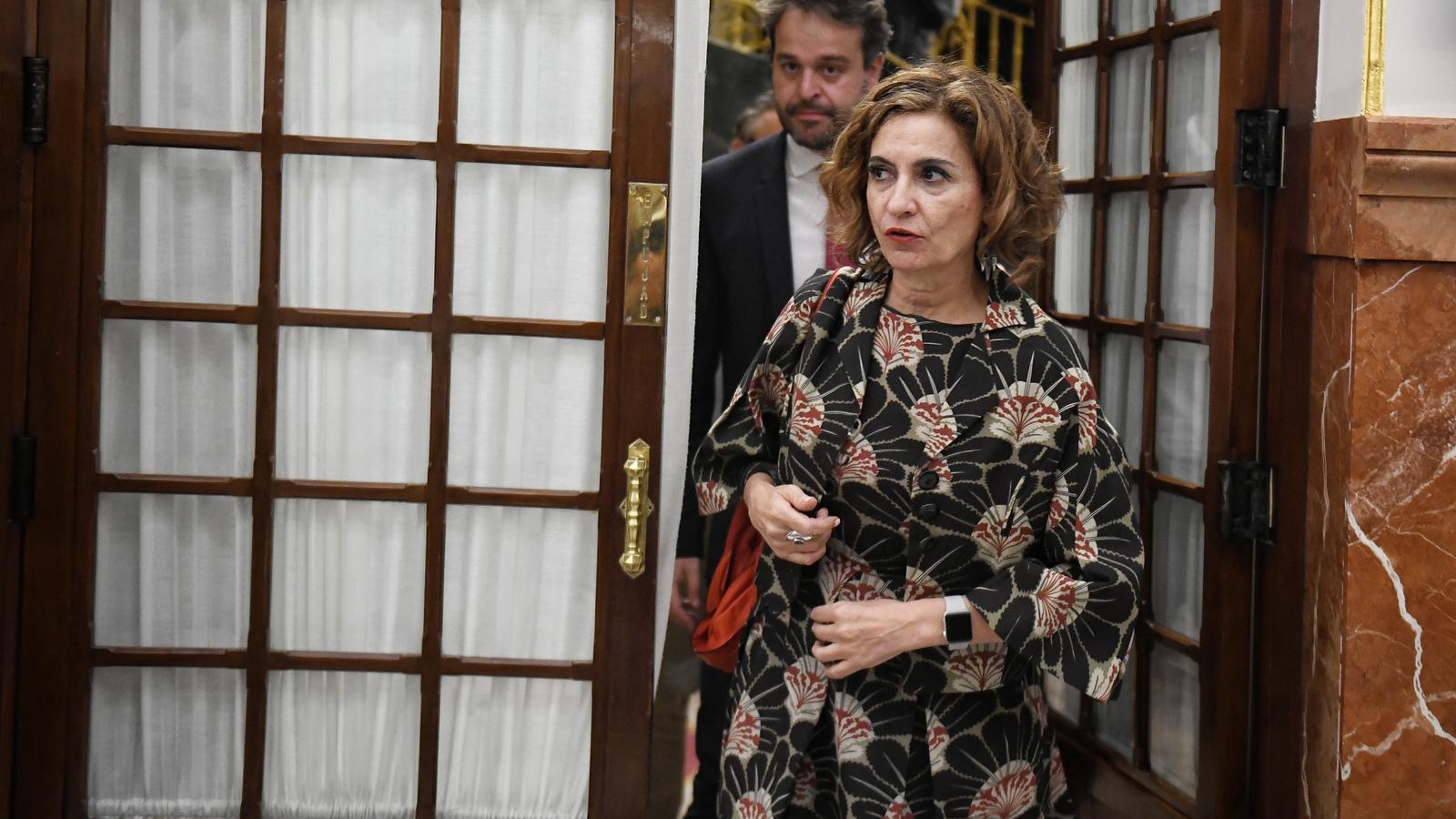Sánchez will launch the political course by writing off Catalonia's debt of 17 billion euros.
The Council of Ministers expects to approve it on September 2 and it will have to go through Congress.

MadridPedro Sánchez wants to win back Esquerra to try to push through at least a budget in this legislature and will launch the political course by approving the debt forgiveness of the Generalitat with the Autonomous Liquidity Fund (FLA) that they agreed upon for the investiture, as he has advanced. Digital NationIn February, the first vice president of the Spanish government, María Jesús Montero, announced that they would be 17.104 billion euros for Catalonia, which corresponds to 20% of the total debt that the Catalan government owes to the Spanish government. For all the autonomous communities, it amounts to €83.2 billion. The calculation of how much each one would owe was made using a series of criteria also agreed upon with the Republicans, which outraged the autonomous communities governed by the People's Party (PP), which until now have opposed this measure. They exemplified this at a meeting of the Fiscal and Financial Policy Committee (CPFF) with a snub in Montero, although it remains to be seen, once the mechanism is definitively approved in Congress—an absolute majority is required—whether they choose to avail themselves of the financial oxygen provided by the state executive.
Sources from the Moncloa consulted by ARA confirm that the bill will be submitted to the Council of Ministers in early September, presumably on the 2nd, a "step forward" that ERC celebrated in a statement. The debt settlement has not been a complicated aspect of the pact that Oriol Junqueras and Félix Bolaños signed in November 2023, and for the Republicans, the main demand for approving the State's public accounts is that "decisive progress" be made in reforming the financing system, the Republicans insist. In fact, this Monday, the president of ERC warned that his party is currently is far from being able to vote in favor"Catalonia needs to collect its taxes, and the Socialists must decide whether they support the rights of all Catalans or whether they want to continue putting the most personal and selfish interests of some of their candidates first," Junqueras stated from the Catalan Summer University in Prada de Conflent. The PSOE-ERC agreement on special funding suffers from several obstacles.
In recent weeks, the necessary formalities, such as the public consultation, have been completed, and the Ministry of Finance has summoned all regional governments to finalize the figures. Some communities with conservative governments flatly refused to meet with the state executive to address this issue. In this regard, already at the February CPFF (Federal Council of Ministers), some councilors, such as the Balearic Islander Antoni Costa, anticipated that they would not accept debt forgiveness. During this time, however, other regional leaders have not been so categorical, such as the Valencian president, Carlos Mazón, who, despite not considering this the solution to the underfunding of the Valencian Community, has not ruled out accepting the settlement.
Sources from the Ministry of Finance criticize the PP's position. "It doesn't matter whether they make things easier or not; those who want to join should do so. They're not forced, although it's unusual for you to forgive their debt and they don't want to. Each region will have to explain that." It's assumed the PP won't vote in favor in Congress, although it's hoped the investiture majority won't be broken on this issue. However, an absolute majority is required since this is a reform of an organic law, so Junts i Podem will have to enter the equation.
What money is being forgiven?
Debt forgiveness not only affects the portion of the debt linked to the FLA. It should be noted that some autonomous communities, such as Madrid, did not need to access this extraordinary mechanism and continued to finance themselves in the markets. Therefore, the law will take into account the total debt. In absolute terms, the region that will see the largest amount of debt forgiven is Andalusia (€18.791 billion), where the People's Party (PP) governs with Juanma Moreno Bonilla. However, Andalusia has joined the other regions that have positioned themselves against debt forgiveness, including the Valencian Community (€11.21 billion) and Madrid (€8.644 billion), the other regions that benefited the most.
The idea is that the debt relief will help regions that have not yet returned to the market to re-enter, although it may not be enough (rating agencies are the ones that assess the health of a region's financial condition). Furthermore, the regions that are not included must also want to. It must be taken into account that financing in the market is more expensive than doing so through the FLA. This basically means paying more interest. In the case of Catalonia, in March 2025, the Minister of Economy, Alícia Romero, stated that the intention was to return in 2026, provided the debt relief is approved. "We'll see," indicate sources from the regional government. According to the latest data from the Bank of Spain, the Generalitat (Catalan government) has a liability of 78.513 billion euros to the State.
What happens to the outstanding interest?
But there's one issue that the Treasury hasn't resolved yet, and the fine print of which is expected to be revealed once the law is fully approved: what happens to the interest on the debt that the regions owe the state? For now, the Treasury has only put forward a range of what the potential cost of not repaying this interest might be: between €5 billion and €7 billion. According to the ERC (Republican Socialist Workers' Party), Catalonia will save €1 billion in debt interest.
